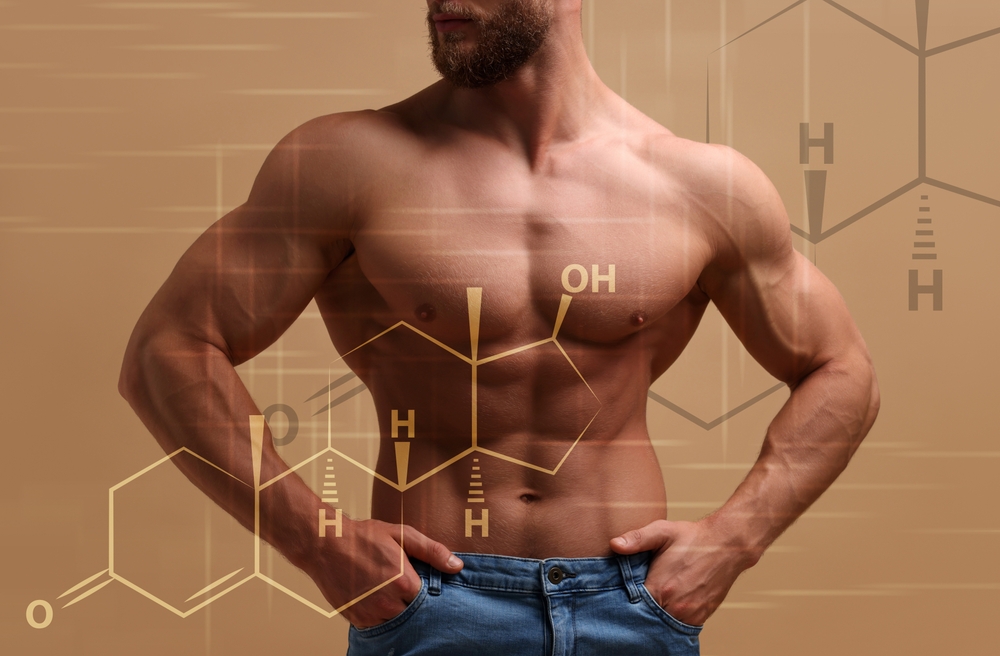Testosterone is often heralded as the cornerstone of muscle development in men, yet many are unaware of its multifaceted role within the body. This hormone not only orchestrates the composition and function of our muscles but also significantly influences our energy levels, mood, and overall well-being. Its levels can dramatically alter the muscle-building journey, dictating not just how muscles grow but also how well they recover after intense physical activity.
Understanding testosterone’s crucial role is fundamental, as it impacts everything from baseline strength to the efficiency of muscle recovery processes. High or optimal levels can lead to significant muscle mass gains and improved recovery rates, while low testosterone levels might impede progress, leading to frustration and potentially stunted muscle development. By diving into the physiological underpinnings and mechanisms of testosterone, one can better appreciate its profound influence on muscle synthesis and recovery.
Understanding Testosterone
Testosterone is a key hormone in the human body. It plays a vital role, especially for men, in various physical and mental functions. Produced primarily in the testicles, testosterone affects muscle mass and bone density, influences sex drive, and even impacts mood and energy levels. Understanding how testosterone works can help one appreciate its importance in overall health and fitness. For those with low testosterone levels, treatments like testosterone replacement therapy can help restore normal levels, offering numerous benefits. In this section, we’ll explore the role of testosterone and its significance in muscle building.
Role of Testosterone in the Body
Testosterone influences many bodily functions. In men, it is crucial for the development of male physical features. It impacts muscle growth, making it important for athletes and those looking to increase muscle size and strength. It also contributes to bone density, ensuring strong bones.
Furthermore, testosterone affects sex drive and can influence aggressive behavior, depending on its levels in the body. It aids in blood cell production, which is essential for carrying oxygen throughout the body. Testosterone is produced by the adrenal glands and under the control of the pituitary gland. When testosterone levels decline, it can lead to a decrease in muscle mass, energy, and overall vitality. Therefore, maintaining healthy testosterone levels is vital for men’s health.
Importance of Testosterone in Muscle Building
Testosterone plays a significant role in muscle building. It helps in muscle protein synthesis, which is crucial for repairing and growing muscle fibers. High levels of testosterone contribute to greater muscle strength and can lead to gains in muscle mass. This is why many athletes prioritize maintaining normal testosterone levels for optimal performance.
Increased testosterone levels can enhance athletic performance and recovery time after workouts. This hormone is essential for those looking to maximize their muscle growth and size. However, a decline in testosterone levels can lead to muscle loss, challenging those striving for physical fitness. Hormone replacement therapies, like doses of testosterone, can be considered for those with testosterone deficiency, offering improvements in muscle gains and overall muscle health.
Physiological Factors of Testosterone
Testosterone is a key hormone in the male body, influencing a range of physiological functions. Produced mainly in the testes and to a lesser extent by the adrenal glands, it plays a crucial role in developing male characteristics. This sex hormone impacts bone density, red blood cell production, and sex drive. Most importantly for muscle building, testosterone enhances muscle protein synthesis, leading to increases in muscle mass and muscle strength. Anabolic Steroids often mimic these effects, albeit with potential health risks. Understanding testosterone’s natural role helps in recognizing how deviations in its levels might affect overall athletic performance and muscle growth.
Baseline Testosterone Levels
Normal testosterone levels in men range widely but are crucial for maintaining health and vitality. These levels are usually measured in nanograms per deciliter (ng/dL), with a normal range being roughly 300 to 1,000 ng/dL. Age, lifestyle, and genetics influence these levels. The pituitary gland regulates testosterone production, maintaining balance in the body. When levels fall below this normal range, it can result in symptoms like loss of muscle mass and decreased sex drive. Monitoring these levels can help to manage health and wellness, especially when changes in muscle size and mass are focal points for fitness or athletic goals.
Effects of Low Testosterone on Muscle Growth
Low levels of testosterone, also known as testosterone deficiency, can hinder muscle growth. These levels might lead to a loss of muscle mass due to decreased muscle protein synthesis. Men experiencing low testosterone often notice declines in athletic performance and muscle strength. This deficiency might come with other symptoms like low sex drive and fatigue. Hormone replacement therapy is a treatment option that some consider, but it is important to weigh the benefits and risks. Low testosterone isn’t just about weaker muscles; it also affects bone density, increasing risks for osteoporosis. Thus, maintaining healthy testosterone levels is vital for sustained muscle gains and overall wellness.
Benefits of Optimal Testosterone Levels
Optimal levels of testosterone significantly benefit muscle building and general health. With healthy testosterone levels, muscle growth and strength increase, largely due to enhanced muscle protein synthesis. These levels support athletic performance, assisting with faster recovery times and better endurance. Maintaining optimal testosterone can prevent muscle loss and contribute to achieving a physique characterized by larger muscle size. Furthermore, testosterone influences other aspects like bone density and an active sex drive. Therefore, ensuring testosterone levels are within the healthy range is essential for both bodybuilders and men interested in maintaining a vigorous lifestyle. Engaging in regular exercise and eating a balanced diet can naturally support testosterone production, enhancing these benefits.
Mechanisms of Testosterone in Muscle Development
Testosterone plays a crucial role in muscle development for men. This hormone is produced primarily in the adrenal glands and testes. It influences physical features like muscle mass and bone density. Testosterone production increases during puberty and peaks in early adulthood. As men age, there is a natural decline in testosterone levels. Understanding how testosterone affects muscle can help in managing muscle growth and overall health. Let’s explore how testosterone contributes to muscle mass, aids in recovery, and influences muscle fiber synthesis.
Testosterone and Muscle Mass
Testosterone is a key factor in increasing muscle size and strength. It helps in muscle protein synthesis, which is the process of building new muscle proteins. This leads to gains in muscle mass and muscle strength. Healthy testosterone levels are essential for maintaining muscle and preventing loss of muscle mass. Men with testosterone deficiency might see a decline in muscle size. Some turn to testosterone replacement therapy to restore normal testosterone levels. This therapy can help in maintaining a normal range of testosterone, which supports both muscle maintenance and growth.
Influence on Muscle Recovery
Recovery is vital for muscle growth and athletic performance. Testosterone aids in muscle recovery by enhancing the body’s ability to repair and rebuild muscle tissue after exercise. Adequate levels of testosterone improve the recovery times, helping to reduce muscle soreness and injury risks. This hormone also helps improve blood cell production, which is beneficial for supplying muscles with the nutrients and oxygen required during recovery. Men experiencing a decline in testosterone levels may find their recovery process slowed, which can affect their muscle growth and overall performance.
Muscle Fiber Synthesis
Muscle fiber synthesis is an essential part of building muscle mass. Testosterone contributes to this process by promoting muscle protein synthesis, resulting in bigger and stronger muscles. High testosterone levels can lead to increased gains in muscle mass, while low levels might lead to muscle loss. Anabolic steroids, which mimic testosterone, are sometimes used to boost muscle fiber synthesis artificially. However, this can carry risks of aggressive behavior and other health issues. Maintaining a dose of testosterone within the normal range supports healthy muscle growth without such side effects.
Lifestyle and Natural Methods to Boost Testosterone
Testosterone is a crucial hormone for muscle building, bone density, and sex drive in men. Maintaining healthy testosterone levels can improve muscle mass and overall well-being. While testosterone replacement therapy is an option for some, many prefer natural methods to boost their levels. Lifestyle changes, diet, exercise, and sleep are important factors. These methods support testosterone production and can help avoid the effects of testosterone replacement. Exploring these areas can provide a holistic approach to increasing testosterone naturally.
Dietary Influences on Testosterone
A balanced diet plays a significant role in maintaining normal testosterone levels and promoting muscle growth. Certain foods can enhance testosterone production, while others might hinder it. Foods rich in zinc, such as nuts and seeds, are essential for testosterone production. Similarly, consuming healthy fats from sources like avocados and olive oil supports hormone health. Vitamin D is another critical nutrient, found in fish and fortified foods, known to influence testosterone levels. Processed foods and those high in sugar should be limited as they can negatively impact hormone balance. By paying attention to dietary choices, men can support healthy testosterone levels and potentially improve muscle mass.
Exercise and Physical Activity
Regular exercise is vital for maintaining healthy testosterone levels. Resistance training, like lifting weights, is particularly effective in boosting testosterone production and increasing muscle size. Engaging in high-intensity interval training (HIIT) can also stimulate testosterone. Consistent physical activity improves muscle mass and strength while enhancing athletic performance. Exercise not only helps with testosterone levels but also benefits overall health by reducing stress and supporting weight management. By incorporating regular workouts, men can support testosterone production and achieve better muscle-building results naturally.
Importance of Adequate Sleep
Adequate sleep is crucial for optimal testosterone production and muscle recovery. During sleep, the body releases growth hormone and repairs muscle tissue, which is essential for gains in muscle mass. Lack of sleep can lead to a decline in testosterone levels and affect muscle growth and strength. It is recommended that adults aim for 7 to 9 hours of quality sleep per night to ensure hormonal balance. Proper sleep management can enhance athletic performance, energy levels, and mood. By prioritizing rest, men can naturally boost testosterone levels and improve muscle-building efforts.
Testosterone Replacement Therapy (TRT)
Testosterone Replacement Therapy, or TRT, helps men with low testosterone levels. Testosterone is vital for muscle building, bone density, and sex drive. When testosterone levels drop, men might experience muscle loss and lower energy. TRT can restore healthy testosterone levels, improving muscle mass and strength. It works by providing a dose of testosterone to the body, boosting testosterone production. However, it’s important to understand when TRT is needed and the possible risks involved.
What is TRT?
TRT is a treatment for testosterone deficiency. It helps increase the levels of testosterone in the body. This is important because low testosterone can affect muscle size, bone density, and even mood. TRT involves different methods, such as injections, patches, or gels. These deliver testosterone into the bloodstream, helping to balance levels. A normal range of testosterone can improve muscle gains, athletic performance, and energy. It may also help with muscle protein synthesis, promoting muscle growth. Understanding TRT can lead to better health choices.
When to Consider TRT
Consider TRT if you have symptoms of low testosterone. These symptoms might include fatigue, muscle loss, or a decrease in sex drive. Low testosterone can be confirmed through blood tests measuring levels of testosterone. If your testosterone production is below normal levels, a doctor may suggest TRT. It’s crucial to discuss with your healthcare provider. Together, you can decide the best treatment. While TRT can enhance muscle strength and mass, it is not a quick fix. It should be part of a larger health plan, including diet and exercise.
Risks and Side Effects of TRT
TRT isn’t without risks. Some men may experience side effects. These might include acne, sleep disturbances, or increased red blood cell production. There’s also a risk of aggressive behavior or changes in mood. Long-term use may affect the heart and other organs. It’s essential to monitor these risks with your doctor. Regular check-ups can ensure you maintain healthy testosterone levels. Always weigh the benefits against the potential side effects. This careful approach helps maintain a balance between muscle gains and overall health.
Strategies for Optimizing Muscle Growth
When it comes to building muscle, combining diet, exercise, and lifestyle plays a crucial role. Muscle growth isn’t just about lifting weights; it’s a comprehensive approach that involves several factors. One of the key elements in this process is testosterone, a hormone that significantly influences muscle size and strength. Factors like normal testosterone levels, blood cell production, and testosterone production can greatly affect how quickly and efficiently muscles develop. Understanding these elements and how they interconnect is essential for optimizing muscle gains. By focusing on these strategies, you can maximize your results and improve your athletic performance.
Combining Diet, Exercise, and Lifestyle
Building muscle isn’t just about spending hours in the gym. It’s about a holistic approach that combines diet, exercise, and lifestyle choices. A balanced diet fuels your body with the nutrients it needs for muscle repair and growth. Protein, in particular, supports muscle protein synthesis, which is critical for gains in muscle mass. Incorporating healthy levels of testosterone into your strategy is also vital for enhancing muscle size and strength.
Exercise is another key component, and not all workouts are created equal. Focusing on resistance training, such as weight lifting, can lead to significant muscle growth. Including a mix of high-intensity and moderate training sessions helps maximize muscle strength and endurance. Lifestyle choices, such as proper rest and stress management, also play a huge role in muscle development. Good sleep supports hormonal balance, while stress reduction prevents cortisol from negatively affecting muscle growth.
Monitoring and Adjusting Strategies
To optimize muscle growth, it’s important to track and adjust your strategies regularly. Monitoring testosterone levels is crucial, as a decline in testosterone levels can lead to muscle loss and reduced athletic performance. Regular blood tests can help you ensure your levels are within the normal range. If necessary, consult a healthcare professional to explore options like testosterone replacement therapy. This can aid in maintaining healthy testosterone levels, thereby supporting muscle gains.
Adjusting your routines based on results is essential. If you notice a loss of muscle mass despite consistent efforts, revisit your diet and exercise regimen. It might be necessary to increase protein intake or alter workout intensity. Also, keep an eye on lifestyle factors. Ensure you’re getting enough rest and managing stress effectively. By staying vigilant and open to change, you can achieve optimal muscle growth and maintain your progress over time.






